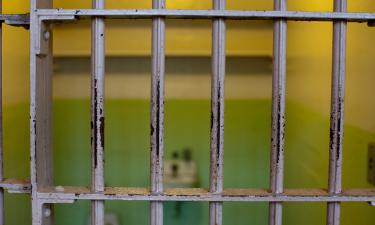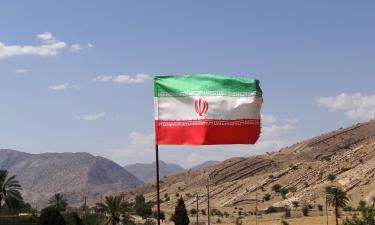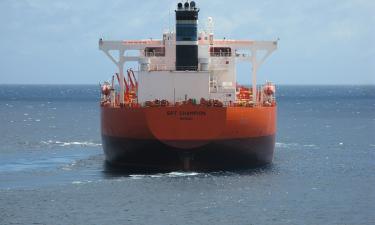Who can start a civil war in Afghanistan?
The instantaneous rise of the Taliban* movement to power in Afghanistan made the world media talk about the resumption of the civil war in the country. Will there be a civil war in Afghanistan?
When the Northern Alliance (with the support of the United States and a number of Western countries) expelled the Taliban from Kabul in 2001, their political opponents and a number of warlords also challenged the authority of the Taliban* leaders.
Having made the triumphant return 20 years later, the Taliban* are trying to form a government and governing institutions. Opposition-minded groups will perhaps try to either resist or seek political and economic benefits, but none of those groups can boast of the massive influence that radical Islamists have.
Islamic State* – Daesh*
According to Western observers, Wilayat Khorasan (a branch of ISIS* - Ed.) may bother the general public with bloodsheds such as the one that took place at the Hamid Karzai International Airport on August 26, but this movement in no way threatens the authority of the Taliban*.
In this branch of Daesh*, or ISIS*, there are no more than 4,000-5,000 militants who operate in eastern Afghanistan, mainly on the border with Pakistan in the provinces of Nangahar and Kunar. Unlike the much larger Islamic State in Iraq and Syria, Afghanistan's ISIS* fighters are capable of attacking certain civilian targets, but they are wary of going into direct confrontation with national security forces or the state political system.
Experts have no evidence of support for the Islamic State; in rural areas, where local residents supported the Taliban* between 2001 and 2021. As for Pakistan, the country is not yet ready to risk its ties with the Taliban* by offering assistance to rivals.
Panjshir resistance and Northern Alliance
It was reported that the Taliban had captured the Panjshir Gorge. Images of the Taliban flag blowing in the wind in Bazarak, the capital of the Panjshir province, seem to make them look solid.
As for resistance, it is mainly represented by Tajiks, who operate under the leadership of Ahmad Massoud, the son of famous military leader Ahmad Shah Massoud. The latter, together with the vice-president of the ousted government, Amrulla Saleh, established the National Resistance Front of Afghanistan (formerly called the Panjshir Resistance).
In the absence of any significant foreign support, Massoud's resistance was focused on preserving the autonomy of the region and repelling Taliban attacks. He proposed negotiations based on "live and live let others" principle. However, this is an outdated tactic, and the movement has already suffered a debacle.
General (currently Marshal) Abdul-Rashid Dostum), of Uzbek and Turkmen descent, trained in Soviet military institutions, who commanded the Afghan government army during the 1980s, had been fighting against the Taliban from the very beginning. The Afghan Chapaev, as he was nicknamed for his temper, was a key link with the United States in the operations of the Northern Alliance, which drove the Taliban* out of Kabul in 2001. Having survived at least two assassination attempts, he moved to Uzbekistan in August.
Ethnic Tajik Atto Muhammadi Nur, who trained the Mujahideen to fight against the Soviet troops, for which he was nicknamed "Teacher", then became the commander of the Mujahideen of the Islamic Society of Afghanistan and entered into an alliance with Dostum. He fought against the Taliban* too. He, like Dostum, had to hide in Uzbekistan.
Dostum and Nur pledged allegiance to Massoud, but they could have avoided that if Panjshir had fallen to the Taliban. Even before the hostilities began, Nur prioritized politics over military action, as he told Reuters.
The Lion of Herat and Iran
Since 2001, the leading power in western Afghanistan, including the country's third largest city, Herat, has been in the hands of Mohammad Ismail Khan, a Tajik, supported by Iran. During the Afghan war (1979-1989), the commander-in-chief of the Western United Group was nicknamed:
- Turan (captain) Ismail,
- The Lion of Herat.
In 1992, he served as the Governor of Herat Province, was the Minister of Water Resources and Energy. He had survived several assassination attempts; during one of them he was wounded and lost his son.
On August 13, the Talibs* captured him and placed him under house arrest, but three days later, Ismail Khan appeared in the Iranian city of Mashhad. Analysts speculate that he will be able to obtain support from Tehran, but so far Iran's strategy has not been consistent.
Islamic Party of Afghanistan
The biggest intrigue is about a possibility for former Taliban enemy Gulbuddin Hekmatyar to join the Taliban* government. Hekmatyar, the founder of the Islamic Party of Afghanistan, received greatest assistance and support from the CIA in the fight against the Soviet Union. One of the most brutal Mujahideen leaders in the 1990s before the Taliban*, he had served as the prime minister in 1996.
After the fall of the Taliban* in 2001, Hekmatyar went into hiding in Pakistan, having tasked his forces to overthrow the Hamid Karzai government — a protégé of the international intervention forces. Having returned from exile, he signed a peace agreement with the Afghan authorities in September 2016.
Nowadays, Hekmatyar and his former enemy Hamid Karzai, as well as the former Prime Minister of Afghanistan, Abdullah Abdullah, conduct negotiations with the Taliban* in their endeavour to form the new government of Afghanistan. Hekmatyar reaffirmed his determination to work with the Taliban*, even if he does not take the minister's office: "We have no conditions for our participation in the government, except for the appointment of competent persons."
*terrorist organizations, banned in Russia.
Subscribe to Pravda.Ru Telegram channel, Facebook, RSS!





